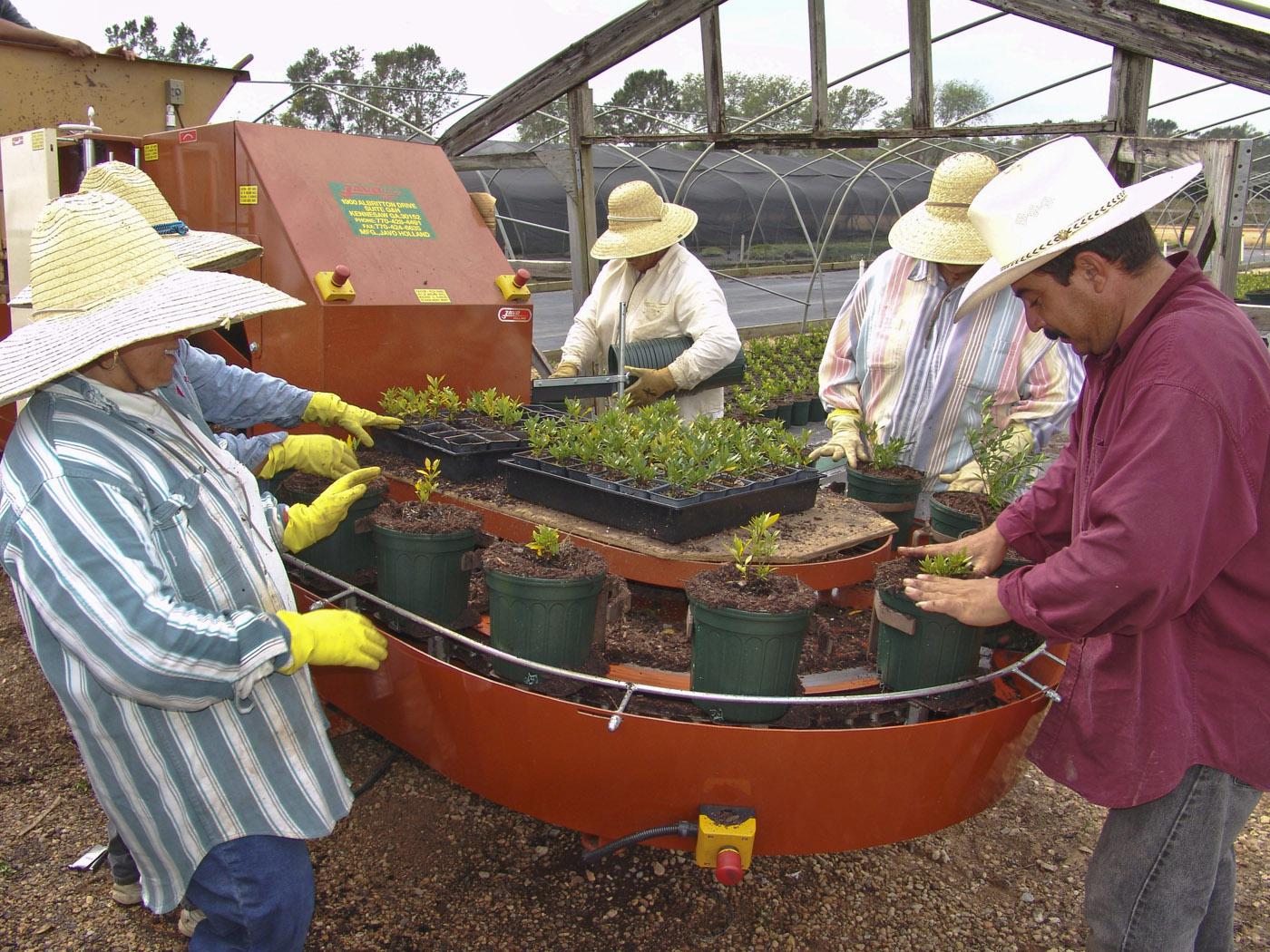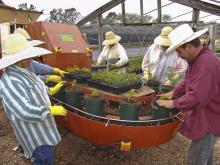Information Possibly Outdated
The information presented on this page was originally released on July 16, 2009. It may not be outdated, but please search our site for more current information. If you plan to quote or reference this information in a publication, please check with the Extension specialist or author before proceeding.
Horton follows dream to manage research farm
By Rebekah Ray
MSU Delta Research and Extension Center
STONEVILLE – Even though Sean Horton’s father discouraged him from pursuing a career in forestry and agriculture, the Greenville teenager was determined to follow his dream.
Since 1993, the younger Horton has worked as farm manager at Mississippi State University’s Delta Research and Extension Center in Stoneville, the university’s largest off-campus research center.
At the 4,100-acre facility, Horton coordinates research with the center’s 16 scientists, provides land for them to plant, maintains their fields and harvests their crops.
“Each scientist does his or her own inputs, while our Farm Services crew handles jobs like ground preparation, planting crops, maintaining weed control and harvesting crops,” Horton said.
Some researchers focus their efforts on weeds while others specialize in soil fertility or concentrate on insect control. They need different services from Horton’s department.
“For example, in the fields we plant for entomologists, we have to be certain to avoid doing insect control. In the fields for agronomists, we handle fertilization, insect control and harvesting,” Horton said.
Managing a farm as large as the Delta Branch requires meticulous record-keeping. Horton and his office staff rely on the Mississippi Budget Generator computer program provided by MSU to record all that is done to each field. At the end of the production season, researchers can check for statistics such as watering, plowing, insect control, fertilization and even airplane coverage.
Linda Harkins has worked in DREC’s farm office since 1985 and is familiar with Horton’s work.
“Sean is very knowledgeable about agriculture and treats employees under his supervision with respect. It is very common to see him on a tractor in the field with his crew,” Harkins said.
Recently, Horton’s work crew has decreased from eight to six because of retirements. Several more are eligible for retirement. Because of tighter budgets, fewer personnel are available to operate large farm equipment.
Another big challenge for Horton is making certain his work does not negatively affect any of the researchers’ work. That is where his degree in agronomy from MSU and his five years of work experience as a sales representative with Wilbur-Ellis become valuable.
“My years of working in the agricultural chemical business have helped me tremendously in what I am now doing,” Horton said. “At Wilbur-Ellis, we spent our days answering questions about chemicals for customers in all forms of farming from vineyards and orchards to row crops.”
Located close to Horton’s desk is a 2,650-page Crop Protection Reference book for quick consultation. The years at Wilbur-Ellis also honed Horton’s managerial skills, which have proven beneficial in his position at DREC.
A typical day for Horton and his crew begins at 7 each morning as they confirm plans for the station’s 1,100 acres of row crop research land.
“Unlike a regular farming operation, each field at the experiment station represents a farm in itself and is assigned to a different researcher each year. I keep a color-coded layout of assigned fields,” Horton said.
Mississippi State recognized Horton’s expertise in agricultural management at its 2009 staff recognition day on June 26 by presenting him with the Doris and Louis Wise Support Staff Award. The annual recognition has been presented by MSU’s Division of Agriculture, Forestry and Veterinary Medicine since 1987.
“I had no idea I was going to receive this,” Horton said. In addition to a plaque, he received a cash award of $500.
Horton’s managerial and leadership skills are helping keep DREC at the forefront of agricultural research. The station focuses its research on cotton, catfish, corn, rice and soybean, crops that grow well in the Mississippi Delta. At the end of each production year, the branch sells its crops, giving the money back to the state of Mississippi. The station generates about a quarter of a million dollars each year from its thousand acres of land certified for row crop production.
“We participate in Farm Service Agency programs just like individual farmers. Part of my job is to produce as much as I can,” Horton said.
Horton first came to work at the Delta Branch in February 1984 as a farm technician for research professor and agronomist Wayne Ebelhar. Horton left the Delta Branch for a five-year stint at Wilbur-Ellis and worked for another five years as farm manager at MSU’s North Mississippi Research and Extension Center in Verona.
“Most of the jobs I have had were related to farming. I grew up on a farm in the Mississippi Delta and have worked on farms since I was 11. If you grow up in the Delta, farming is inherently a part of your life. It’s in your blood,” Horton said.



